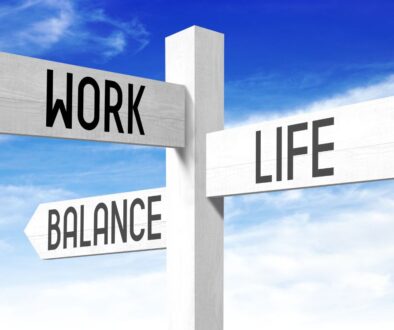When to Leave a Job: 12 Signs to Watch Out For

Published Nov 7, 2021
Deciding to leave a job is an important event in your professional career. While it is natural to have difficulties at work, experiencing a profound and ongoing discontent with your job is worth considering. It’s critical to differentiate between when you should work through a problem and when to leave a job.
There are numerous legitimate personal and professional reasons to resign. So when to leave a job? Here are the signs to watch out for:
1. You are not maximizing your skills.
While it is often convenient, a job that does not challenge you or your skills should be one of the reasons why you should leave. Maintaining this state may limit your possibilities for progress and result in feelings of complacency or frustration. This is especially true if your manager or senior leaders have denied you the opportunity to use diverse skill sets.
2. Your work is not aligned with your passion.
When someone is passionate about their work, they develop a deeper sense of purpose and fulfillment. Additionally, it usually results in increased rates of productivity, improved outcomes, and occasionally the feeling of not working at all. Without this, work can become tedious and resemble more of a job than a profession.
Furthermore, you may feel that you are squandering your potential by failing to apply your skills to something you are passionate about. If you are dissatisfied with your job or the work of your company, try seeking another role.
3. No opportunities for growth.
When your company’s growth opportunities have decreased, it’s usually time to move on. Opportunities for growth in a company are not restricted to promotions or vertical advancement.
Moreover, opportunities may present themselves through employment on a new project, learning in a new part of the business, mentoring by a senior leader, or taking on a mid-level leadership position. Engage your manager and make a formal request for this type of opportunity before resigning. If your company cannot consider any kind of growth opportunity, this is a sign that you should leave.
4. You are grossly underpaid.
While individuals may occasionally take a lower salary in exchange for a unique opportunity or non-monetary fringe benefits, you should consider quitting if you are considerably underpaid for your role. Being underpaid can indicate a misalignment between your perceived value and growth potential and that of the company.
This incompatibility might have various consequences for the duties you are assigned and your time with the organization. Remaining in this situation can also result in dissatisfaction or resentment due to the logistical lifestyle consequences of a low salary, substandard healthcare, or other benefits.
5. You are incapable of fulfilling your job responsibilities.
If you are incapable of fulfilling your job responsibilities due to a physical illness, sudden changes in your personal life, or structural changes within the company, you should think about leaving. Continually working in a position where your capacity to perform your job responsibilities is jeopardized puts you at risk of termination.
Along with the immediate financial consequences of termination, getting laid off might negatively affect your capacity to find work elsewhere. Therefore, consider leaving the job if your efforts to modify your job responsibilities or the circumstances causing the difficulty are pointless.
6. You detest the thought of going to work.
It’s natural to feel sad when the weekend is over or look forward to days off/vacation time. However, if you experience a pit in your stomach when you think about work or cannot sleep at night due to anxiety about going to work, it may be better to leave.
While work does not have to be satisfying or enjoyable, you should feel at ease there. You spend a substantial chunk of your day at work, and if your time off is spent dreading your return, your physical and mental health are likely to suffer.
7. You cannot see yourself staying there in the long run.
Like seeing no room for growth, if you cannot envision yourself staying at the company in the long run, it may be time to consider other possibilities. It can take anywhere from a few months to a year to find a new and more suitable job, so if you cannot see yourself working at your current employer a year from now, consider commencing your job hunt immediately.
8. Your ethics are compromised.
When to leave a job? When you are forced to compromise your ethics or decision-making, it is time to quit. This is especially true in professional situations, where the potential long-term consequences for your career are significant. Even if the compromise is necessary to maintain your current job, it can have a detrimental effect on your capacity to obtain future employment as well as your morale and sense of pride in the process.

9. Work environment is toxic.
A toxic work environment has consequences for your professional and personal satisfaction and is a red flag that you should consider quitting. Punitive and controlling management practices, mistrust and deception among senior leaders, public humiliation and/or harassment of employees, and inefficient communication are all indicators of an unhealthy work environment.
Indicators of a toxic work environment sometimes include significant employee turnover, physical symptoms linked with coming to work, and employees fearful of punishment. If you find yourself in this situation, discover possible coping mechanisms and put them into practice as you look for a new job.
10. Your values do not coincide with the company’s.
In connection with following your passion and compromising your ethics, if your personal beliefs do not fit with your company’s, this is likely a sign that you should leave. If this imbalance has not already resulted in pressure to violate your ethics, it is quite probable that it will happen in the future.
Misalignment with corporate leaders, on the other hand, has consequences that extend beyond ethics. This can result in divergent approaches to work, conflicting prioritization of assignments, divergent methods of staff management, and different viewpoints on critical policies and tactics. Consider changing jobs before this misalignment develops into a serious conflict.
11. You require a greater sense of work-life balance.
While a strong work ethic is a great trait and some extra labor is unavoidable, it may be time to resign if you find yourself working nonstop. Working an excessive amount of hours each week without maintaining a healthy work-life balance can have a detrimental effect on your health and well-being, as well as your productivity and job quality.
If you cannot set limits with your management or establish more realistic expectations, explore career possibilities that offer a better work-life balance, and then quit your current role.
12. Everything is just overwhelming.
Work can be stressful; this is an inescapable fact of life. However, if you’re feeling overwhelmed or stressed about every minor setback or issue that arises, this may be an indication that you’re on the verge of burnout. Additionally, if projects or professional duties that formerly brought you joy are now unpleasant or heavy, it may indicate that you’re overworked, and it’s time to move on to another opportunity.
Searching For The Perfect Office In Boca Raton, Florida?
Find executive office space for rent in Boca Raton at our four story building on Federal Highway. Our convenient location is close to many great restaurants and the I-95 highway. Our flexible lease agreement and amenities are great for small businesses and startups. Enjoy unlimited free brewed coffee, cappuccino, and espresso daily from our kitchen. High speed internet and cleaning service are complimentary. Don’t wait, contact us now to schedule a tour.

This Content Is Fact Checked
This content has undergone a comprehensive fact-checking process led by our internal team. Discover more about the rigorous standards that govern our website’s editorial integrity here.

About The Author
Krizzia Paolyn is an SEO Specialist and holds a bachelor’s degree in Psychology. She started her professional career as a writer for various digital magazines and renowned publications. It has always been her passion to share her voice, and at the same time, to encourage other people to speak up.



